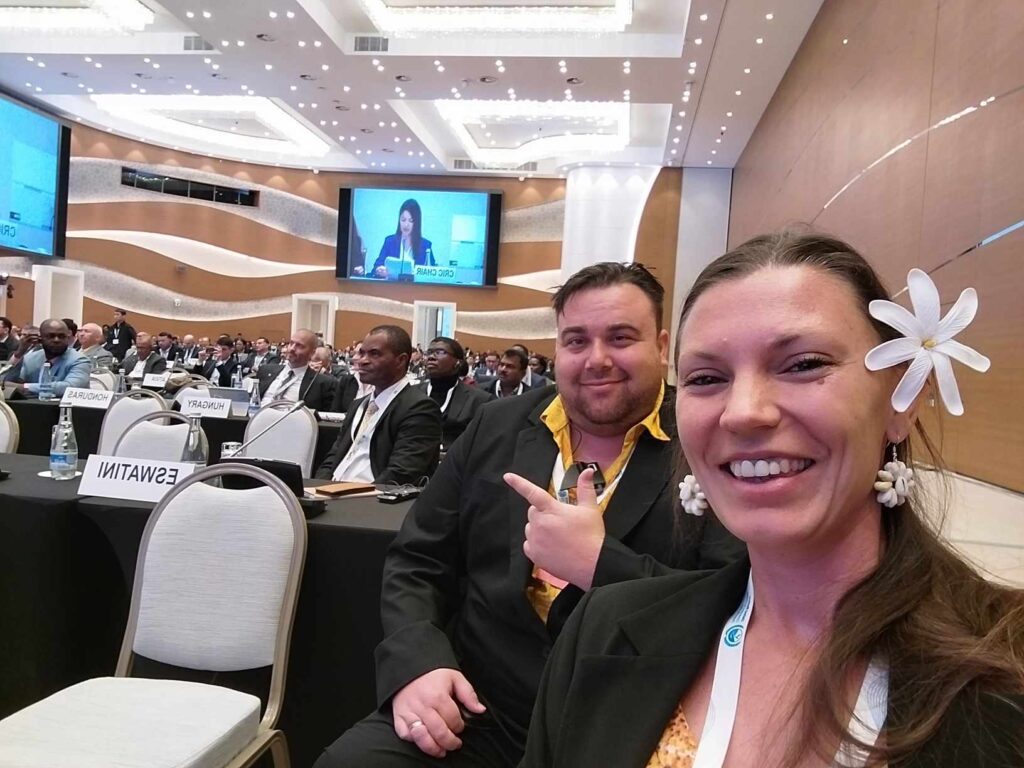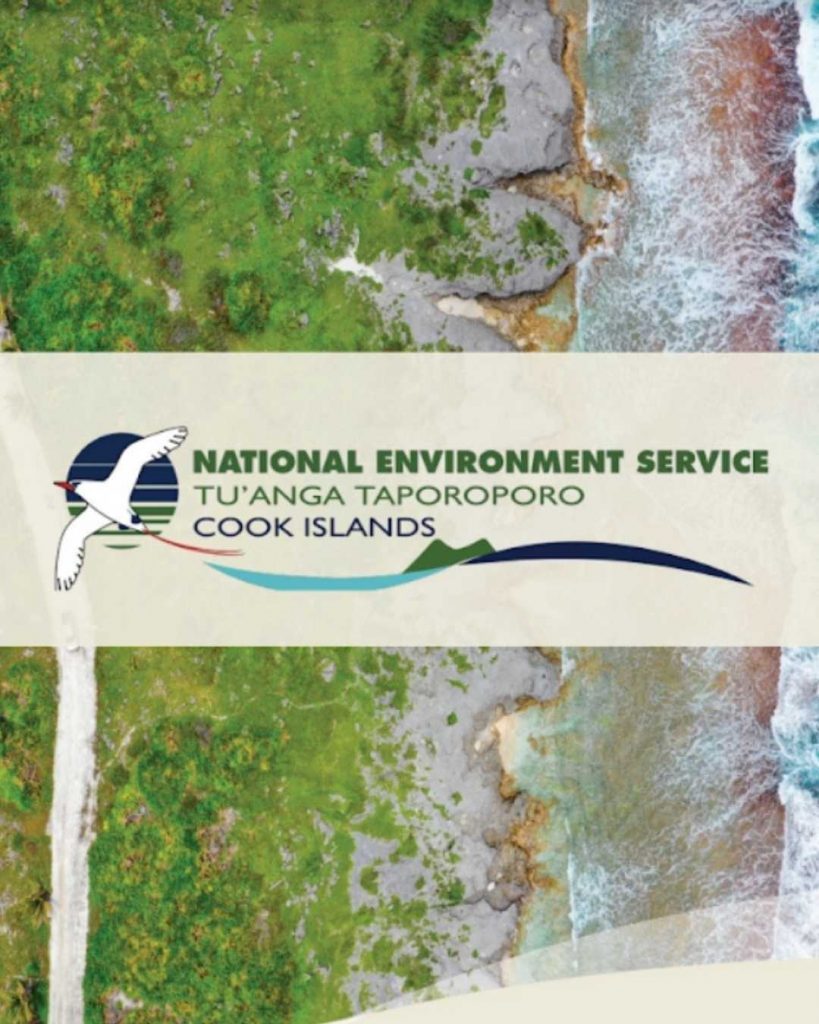The ancient city of Samarkand in Uzbekistan became a global hub for environmental discussions last month, hosting the 21st session of the Committee for the Review of the Implementation of the Convention (CRIC21) of the United Nations Convention to Combat Desertification (UNCCD). Among the attendees were NES Environmental Manager of Partnerships, Hayley Weeks, and NES GEF-7 Project Officer, Fred Nicholas, forming the Cook Islands delegation.
The UNCCD addresses key sustainable land management issues relating to desertification, land degradation and drought. Weeks and Nicholas highlighted some of the primary concerns regarding land degradation and drought in the Cook Islands and contributed to other voices from small island developing states (SIDS) perspectives.
The threats, impacts and vulnerabilities to drought were particularly emphasized by the team and from other Pacific Islands, as the threat of this is expected to worsen with the approaching El Niño period, which is the most prominent driver of drought in our region.
CRIC21 discussions intended to highlight the recent challenges faced in implementing the UNCCD on a global level, particularly in the 2022 reporting cycle, share experiences and strategies, and encourage cooperation among nations facing similar and shared issues. The presence and statements made by the NES team emphasized the reality that small island developing states, like the Cook Islands, are highly vulnerable to environmental changes and impacts, which affect our food & water security and sustainable living conditions.
During the course of CRIC21, the NES team were able to establish dialogues with representatives from other Pacific and Caribbean SIDS and other potential partners, recognizing shared environmental challenges and opportunities for synergies. This collaborative effort aims to ensure the unique needs and perspectives of SIDS are considered in UNCCD processes and supported in implementation. By fostering a united voice, we can amplify our influence, advocate for our unique circumstances, and push for meaningful and sustainable solutions to address the complex issues of land degradation and drought.
CRIC21 represents just one stride in a broader journey towards sustainable drought and land management solutions. NES remains committed to effectively address and overcome these issues through dynamic leadership, strengthened policies and legislation, on the ground action and essential partnerships.
For more information on UNCCD CRIC21, click here







